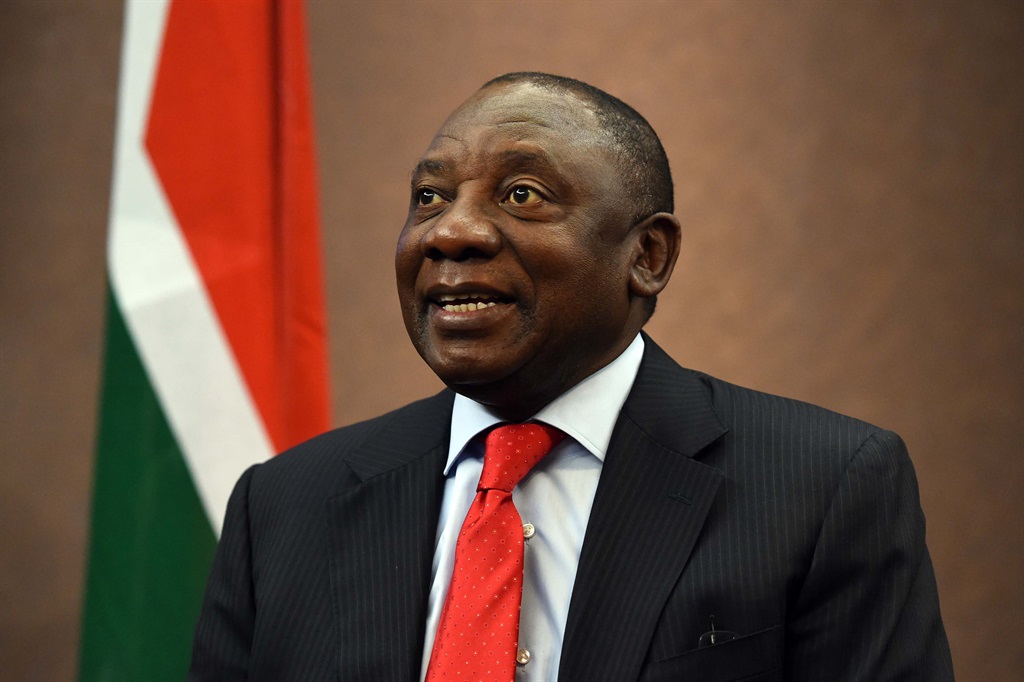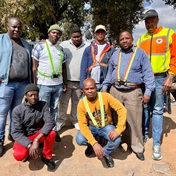
The continent’s two largest economies, South Africa and Nigeria continue to cement political, economic and social relations formally established in 1994 with President Cyril Ramaphosa’s two-day working visit to the West African country, which began on Wednesday.
During the visit Ramaphosa will be meeting with his counterpart, Muhammadu Buhari, and is expected to attend the 2018 Annual Meeting and 25th Anniversary Celebrations of the African Export-Import Bank (Afreximbank).
In a demonstration of its “commitment to promoting intra-African trade and economic integration”, South Africa last year took up shareholding in Afreximbank, the African continental multilateral trade finance institution, becoming the 47th African country to join Afreximbank as a participating state or shareholder.
South Africa was unable to join the bank at its creation in 1993 because the country was still under sanctions due to the apartheid rule at the time.
“It is a significant vote of confidence to have South Africa join Afreximbank as a shareholder,” said the bank’s president, Doctor Benedict Oramah.
Oramah said the significance lay in the fact that South Africa accounted for about 30% to 35% of total intra-African trade, making its membership critical for the attainment of the bank’s strategic goal of moving intra-African trade share of Africa’s total trade from about 15% currently to 22% by 2021 and raising its annual value to more than $250 billion in the next four years.
South Africa’s shareholding in Afreximbank was being overseen by the Export Credit Insurance Corporation of South Africa as its designated investor in line with the terms of the provisions of the Charter of the Bank.
The corporation’s chief executive officer Kutoane Kutoane said the partnership had played a crucial role in the Africa growth agenda.
“The partnership has culminated in the launch of the South African-Africa trade and investment promotion which aims at affording South Africans access to a larger African market at affordable cost,” said Kutoane.
According to Kutoane, the $1 billion financing programme to promote and expand trade and investments between South Africa and the rest of Africa “will provide direct funding, guarantees through traditional ECIC routes as well as provide knowledge sharing and advisory on how to access those opportunities. It will enhance the ability of South Africa to demonstrate relevance in the continent”.
South Africa’s joining of the bank was subsequent to trade relations between the two countries hitting a snag in 2015 when Nigeria imposed a fine of R69 billion on South African telecommunications company MTN over its failure to deactivate 5.1 million unregistered Sim cards in the country.
This led to former president Jacob Zuma visiting Nigerian in 2016 to discuss the treatment of South African businesses in Nigeria.
Relations were also strained between the two nations after a spike in xenophobic attacks against Nigerian nationals in South Africa over the past few years leading to Nigeria’s foreign minister, Geoffrey Onyeama, opening up to City Press at the 31st African Union summit last Sunday that Nigerians still felt unsafe in South Africa.
The president’s spokesperson Khusela Diko, however, said relations between the “two sister republics” were flourishing.
“South Africa exported goods valued at R6.4 billion in 2016 while Nigerian exports to South Africa totalled R30.4 billion and the partnership continued to 2017 where South African exports were valued at R5.7 billion against R22.8 billion imports from Nigeria,” said Diko.
The spokesperson also added that “Nigeria enjoyed a huge trade deficit due to the increasing South African importation of petroleum products”.
The presidency also confirmed that among other topics to be discussed by Ramaphosa and his counterpart were “bilateral, continental and global issues of common concern such as peace, stability and continental integration”.
The two countries who are both holding national elections in 2019 will most likely discuss the pending elections.
Both ruling parties are expected to experience strong challenges from a combined effort against them by their opposition parties.
In South Africa opposition parties have already shown a willingness to combine forces to the detriment of the ruling party with opposition coalitions controlling major metros such as Nelson Mandela Bay, Pretoria and Johannesburg.
Similarly, News24 reported on Tuesday that more than 30 opposition parties in Nigeria were also teaming up to try and prevent Buhari from being re-elected to a second term in power early next year.




 Publications
Publications
 Partners
Partners








